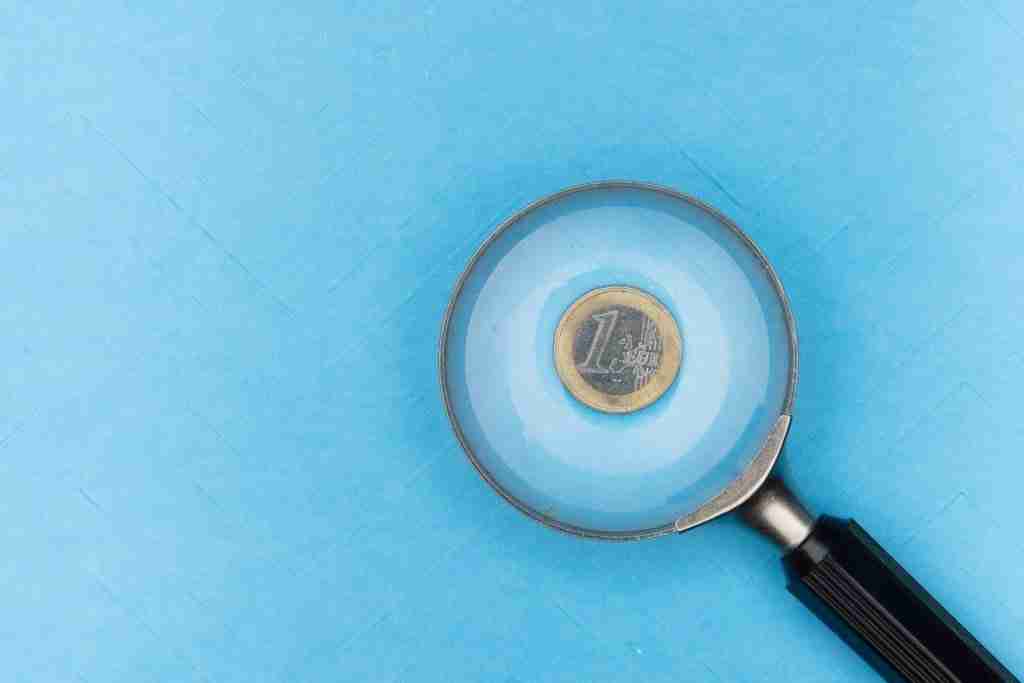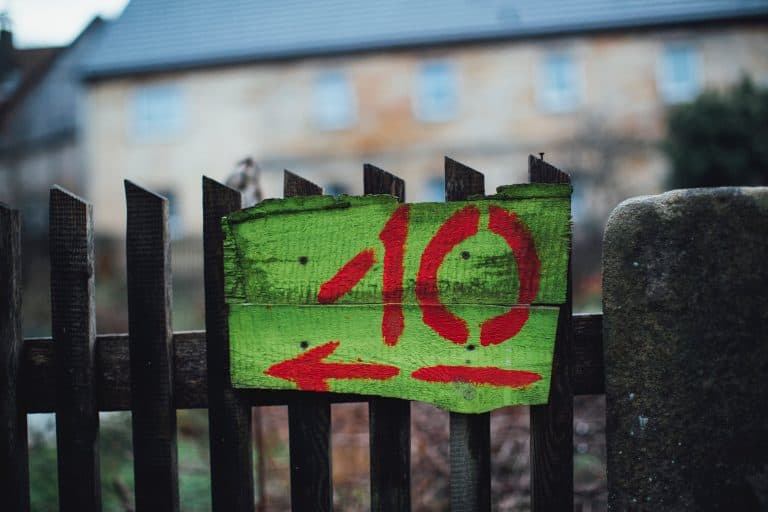How do I find out if I have a pension from an old job? (Important steps to track your money down)
How do I find out if I have a pension from an old job?
You may think I’ve had more jobs than hot dinners and can’t remember who or what was going on at the time. How can I find my pension pots, I mean my pots of gold I seem to have left lying around?
Tracking old pensions from your old job may be very important for your overall net worth, especially if you are approaching retirement.
So here are a few ideas on how to go about finding old pensions.
Table of Contents

How can I find my pension plan from a previous employer?
So life has happened, well, keeps in happening, and you have lost track of your pensions from previous jobs.
Maybe you have
- Changed jobs a lot
- Moved houses a lot
- Moved country now and again
- Changed your name, married, divorced and then remarried
- Just kept a pretty chaotic financial system, i.e. the draw of financial doom.
All or some of these might have resulted in you forgetting where you left that pension on earth. Or even if you ever had one with past employers.
The first thing to do is to try and remember where you worked and when. Can you dig out any of the paperwork from those past jobs?
Can you find your old
- Payslips
- P45 or P60 in the UK
- Contracts or job descriptions
- Do you have the contact details of the employer
- Do you know anyone that used to or still works there that you can ask
You could design a table like this to place your previous jobs in order and collect all the data you might need.
The more info you have, the easier it will be to track the pension down.
| Employers name | Contact details | Dates worked there | Payslips | P45/P60 | Contract or employment details | Staff number | Any old contacts |
Once you have tracked down the contact details of your old employers, you can contact them directly to enquire do you have a pension with them.

Do you know where my pensions are?
Using LinkedIn to track down old pensions
Another method to track down old pensions might be to use Linkedin. Here you can tack down your old company, see who the current HR people are and contact them directly.
If the company doesn’t exist anymore you might be able to track down old colleagues (if you didn’t leave in a blaze of fire and swearing) connect with them and then ask “errr I know we haven’t spoken for 20 years but, do you/we/I have a pension from the old company?”
Can I find my pensions with my national insurance number?
Yes, your national insurance number (NI) will be a bit of critical data to use to track down your pensions. Your NI number is unique to you so will be the one bit of info that should only be linked to you.
You can use your NI number to contact government departments and see if they can track down old pensions. They will also want other info like old addresses and possibly additional identifying info like passport numbers or driving licences.

Ha Ha I have the key to unlocking my fortune! Can I find my pensions with ni number?
How do I find all my pensions?
If you have worked across public and private sectors, you might need to use at least two different services or methods to track down old pensions.
Contacting your old employers
First of all, you can contact your old employers if they are still around and ask them (I know who would have thought of doing this!).
I know it’s going to feel like contacting an old partner to say it hasn’t gone as well as you expected and can you have that 20 quid you lent them 15 years ago. But swallow the pride and try and find that small or large pot of gold with your name on it.
You can also use the Pensions tracing service which, with a bit of info from you, will search if or where your old pension might be. This service is free, but there are also paid options out there that you might want to consider.
If you worked for the government at any time, you could contact the Department for work and pensions who can help track it down.
Summary table: How to find an old pension
| Steps to Find an Old Pension | Description |
|---|---|
| Gather Information | Collect any available information about the old pension, such as the name of the pension provider, dates of employment, and policy details. |
| Contact Previous Employers | Reach out to your previous employers and HR departments to inquire about the pension scheme and request information on how to locate it. |
| Use Government Resources | Utilize government-backed pension tracing services such as the Pension Tracing Service in your country. Provide relevant details to assist in locating your old pension. |
| Contact Pension Providers | Contact individual pension providers identified through previous employment to inquire about the status and location of your pension. |
| Review Old Statements and Documents | Review any old pension statements, correspondence, or paperwork you may have. They can provide valuable clues and contact information. |
| Seek Professional Help | Consider seeking assistance from a financial planner or pension specialist who can help trace and consolidate your old pension accounts. |
| Utilize Online Pension Finders | Explore online pension finder tools or websites that can assist in tracking down your old pension. Provide the necessary information for a search. |
| Keep Records Organized | Maintain a record of your search efforts, including dates of communication, individuals spoken to, and any progress made in locating the pension. |
| Be Persistent | Finding an old pension can be a process that requires persistence. Follow up regularly with pension providers and tracing services until the pension is located. |
How do I get my pension from a previous employer?
Once you have contacted and found out you have a pension, you will likely need to carry on the conversation with the actual pension provider or pension scheme as they are likely holding it for you.
Here’s where you are going to want to understand:
- what your pension is invested in,
- the fees you are currently paying,
- if you can or how you might transfer it and what the costs of this might be
- What your pension is now worth.
With this information, you can review if it’s worth transferring it to a new employer pension, keeping it where it is or seeking further financial advice.
You will likely need to seek financial advice if your old pension is a defined benefit pension and or if your pension pot is particularly large and might need further thought before transferring.
It also depends on what age you are as to what you can do with it as if you are over 55 then you might be able to start accessing it now.
Is it better to transfer pensions into one?
This probably depends on what you have found out in the above investigations.
From an admin perspective, combining pensions can be a good idea as now you have one account to look after.
If the fees of some of your pensions are higher than others, it might be an idea to combine them to lower your fees and keep more of your money yours.
What the pension is invested in may factor in whether you want to switch if you think the companies invested in are no longer what you want to support or value.
All the above would need to be reviewed against what might be the disadvantages, usually along the line of any penalties or fees to transfer or loss of benefits with particular regard to any guaranteed payouts associated with defined-benefit pensions.
Some further pension reading for you
Should I transfer my pension to my new employer?
What happens to my pension when I leave a company?
What is the average pension in the UK and why this is more or less irrelevant to you!
FAQ: Finding lost pensions
How can I find lost pension with ni number?
To find information about your pension using your National Insurance (NI) number, you can follow these steps:
Gather your NI number: Locate your National Insurance number, which is a unique identifier assigned to you by the government.
Contact your current employer: Start by reaching out to your current employer’s HR department or pension administrator. They can provide details about the pension scheme offered by your current employer and assist you in accessing your pension account.
Contact previous employers: If you have worked for multiple employers in the past, consider contacting their HR departments or pension administrators as well. Provide your NI number and relevant employment details to inquire about any pensions associated with your previous employers.
Use the government’s Pension Tracing Service: In the UK, you can utilize the Pension Tracing Service provided by the government. Visit their official website (www.pensiontracing.service.gov.uk) and enter your NI number and personal details as prompted. The service will help trace any pensions associated with your NI number and provide information on how to contact the respective pension providers.
Check your pension statements and paperwork: Review any old pension statements, documents, or paperwork you may have. They often include contact information for the pension providers or relevant instructions on accessing your pension account.
Seek professional assistance: If you’re facing difficulties or have complex pension arrangements, consider consulting a financial planner or pension specialist. They can provide personalized guidance and support in locating and managing your pensions.
Remember to be cautious when sharing personal information and only provide it to trusted sources. Safeguard your NI number and avoid sharing it through insecure channels.
How do I find out what pensions I have?
There are a few different ways to find out what pensions you have.
The most direct way is to contact your previous employers. If you have worked for the same company for a long time, they may have records of your pension contributions. Otherwise, you can check with the Human Resources or Benefits department at each of your previous employers.
Another way to track down your pensions is to use a government website like Pensions Tracing service.
This service allows you to input your personal information and get a list of any registered pensions that are associated with you.
How do I find my pension from years ago?
To find your pension from years ago, you can start by contacting your previous employer or pension provider. They should be able to provide you with details of any pensions you have accrued.
You can also check any previous salary or employment related documents like wage slips, p45/p60, your job description or employers terms and conditions.
With this information you should be able to see if you have a pension and where or which company might have it.
How do I find out if I have a pension from a previous employer?
The way to find out if you have a pension form a previous employer is to first ask them do you or did you have a pension.
If the company no longer exists try and find any paperwork you have from them, pay slips, p60’s or p45’s and see if these show any pension deductions.
Ask old colleagues if they have/had a pension at your old firm and if they can share any of the pension companies details. LinkedIn can be good for finding old work colleagues.
What pensions have I got?
You can find out what pensions you have by contacting your current or previous employer or pension provider. They should be able to provide you with details of any pensions you have accrued.
You can also check your pension statements, Salary statements or login to your pension accounts online to view the details of your pension plans.
Summary: How do I find out if I have a pension from an old job?
You’re going to need to do a bit of investigation work
Find all the paperwork you can from old employers, payslips, p45/p60, contracts.
Contact your old employers and colleagues that used to work there and ask them if there was a pension at your old job?
Then speak to the pension provider to understand what your pension is invested in, fees, current worth and if or how you might transfer it if that’s what you wanted to do.
Good luck out there.
Need a Helping Hand with Your Finances? 🤝💰
If you’ve made it this far, congratulations! You’re already taking steps towards a healthier financial future. But maybe you’re feeling a bit overwhelmed. Maybe the thought of budgeting, saving, and investing still makes you break out in a cold sweat. Don’t worry, you’re not alone, and help is available.
At Financially Happy Money Coaching, I understand that money isn’t just about numbers. It’s about emotions, behaviours, and life choices. That’s why we’re here to help you take the stress out of money and build wealth in a way that aligns with your values and lifestyle.
Whether you’re just starting out on your financial journey or you’re looking to take your finances to the next level, we’re here to guide you every step of the way. I’ll help you understand your financial behaviours, set realistic goals, and create a personalized plan to achieve those goals.
So, why wait? Start your journey towards financial happiness today. Remember, the best time to start was yesterday. The second best time is now.
Click here to schedule your consultation and let’s make your money work for you, not vice versa. 💪💰
Remember, financial freedom isn’t a destination; it’s a journey. And every journey is easier when you have a guide. So, let’s embark on this journey together and create a financially happy future. 🚀💸
📚 Financial Freedom Resources
- The Ultimate Guide To Building Your Savings to $100,000! 📘 is a transformative book that equips readers with principles, strategies, and the mindset 🧠 needed to reach a $100,000 savings goal 💰. It’s a journey towards financial freedom 🚀, challenging beliefs 🤔, embracing new habits 🔄, and overcoming obstacles 💪.
- How to Manage Your Finances: Your Guide to Financial Freedom 📘 is a comprehensive resource packed with practical advice on budgeting 💰, investing 📈, reducing debt 💳, and building wealth 💎. It’s an essential guide for anyone, novice or experienced, aiming to take control of their financial future and achieve financial independence 🚀.
- Mastering Budgeting in Your 40s: Your Guide to Financial Freedom 📘 is your essential roadmap to financial savvy. Packed with tips on budgeting 💰, investing 📈, and debt management 💳, it’s the perfect toolkit for anyone in their 40s looking to secure their financial future and sail towards independence 🚀.
Remember, self-study is a powerful tool for life and financial transformation. Happy reading! 🎉







